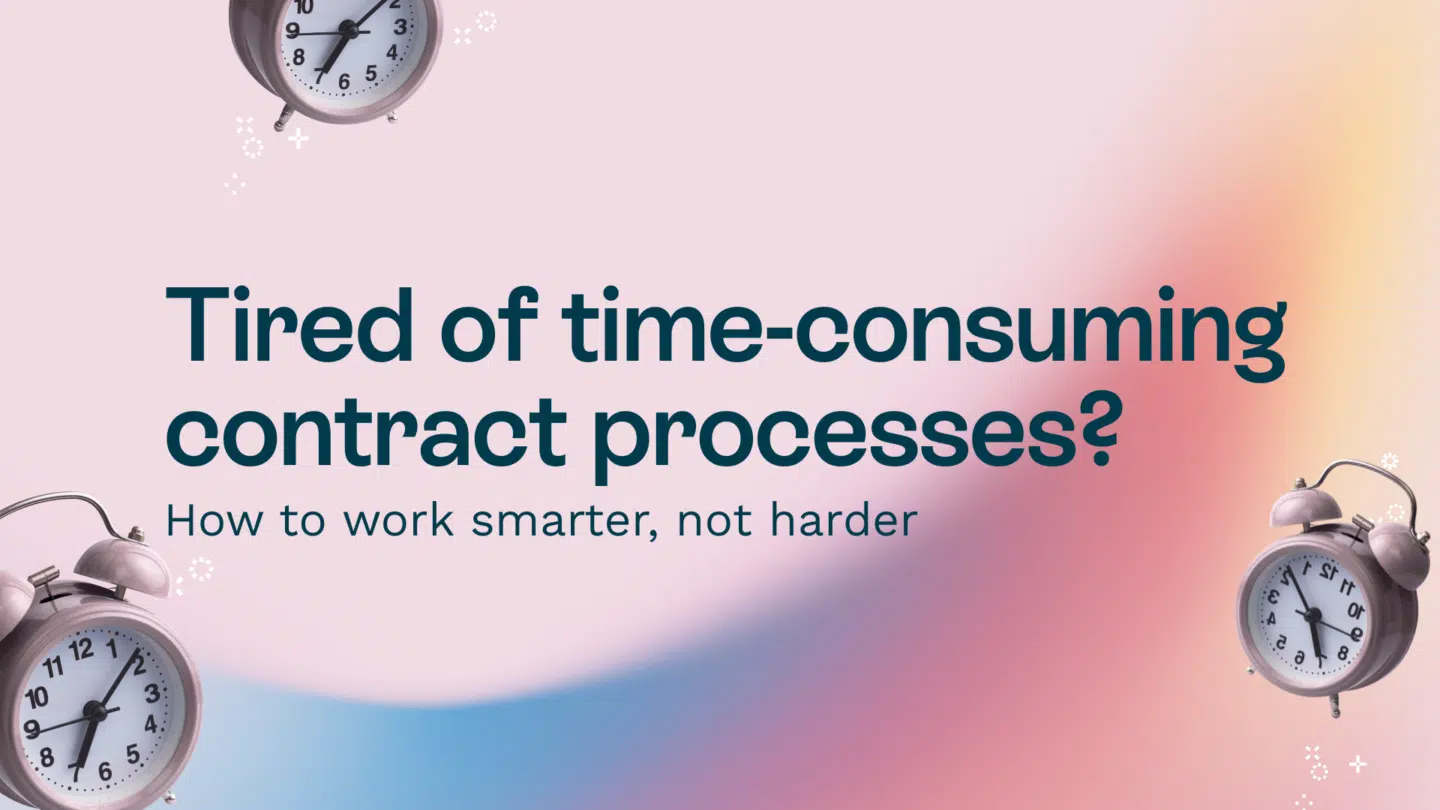An expressed contract is a legally binding agreement that is created through clear and definite terms, explicitly stated either in writing or verbally. Unlike implied contracts, which are based on actions or conduct, expressed contracts rely on the parties explicitly stating their intentions and responsibilities. Understanding the basics of expressed contracts is essential for anyone involved in business or legal matters.
Understanding the basics of expressed contracts
Contracts are an essential part of conducting business and personal transactions. They provide a legal framework that ensures all parties involved are aware of their obligations, rights, and the consequences of non-compliance. One type of contract that is commonly used is an expressed contract.
Read also: What are digital contracts?

Definition and key features of expressed contracts
This type of contract is an agreement where the terms and conditions are explicitly set forth by the parties involved. Unlike implied contracts, which are formed through the actions or conduct of the parties, expressed contracts are based on direct communication. This means that the terms of the contract are clearly stated and leave no room for interpretation.
This type of contract commonly include important elements such as the identification of both parties, the terms and conditions of the agreement, the payment details, and any clauses or provisions that protect the interests of those involved. These contracts are often drafted in writing to ensure clarity and avoid any misunderstandings.
One of the key features of This type of contract is their enforceability. The explicit nature of the terms and conditions makes them legally binding and enforceable in court. This provides a level of security for all parties involved, as they can rely on the legal system to resolve any disputes that may arise.
The legal framework surrounding expressed contracts
The legality of expressed contracts stems from the principle of freedom of contract. This principle allows individuals or entities to create agreements based on their mutual consent. However, it is important to note that not all contracts are enforceable.
There are certain contracts that are considered void or unenforceable. For example, contracts involving illegal activities or those against public policy are not recognized by the legal system. This ensures that contracts are aligned with societal norms and do not promote any unlawful or unethical behavior.
The legal framework surrounding expressed contracts includes statutes and common law principles that govern their formation, interpretation, and enforcement. These laws vary from jurisdiction to jurisdiction, so it is crucial to understand the specific laws applicable in a particular region.
In addition to statutory laws, courts often rely on common law principles to interpret and enforce expressed contracts. Common law principles are derived from court decisions and legal precedents, providing guidance on how contracts should be interpreted and what remedies are available in case of a breach.
It is also worth noting that some jurisdictions have specific laws that govern certain types of contracts, such as real estate contracts or employment contracts. These laws may impose additional requirements or provide specific remedies in case of a dispute.
Expressed contracts play a vital role in ensuring that parties involved in an agreement have a clear understanding of their rights and obligations. The explicit nature of these contracts, along with the legal framework surrounding them, provides a solid foundation for conducting business and personal transactions.
Read also: Contract automation: A complete guide

Types of expressed contracts
Written expressed contracts
Written expressed contracts are documented agreements that are typically more formal in nature. They are often used for complex transactions or agreements that involve substantial sums of money. A written contract provides a tangible record of the agreement, making it easier to refer back to in case of any disputes or misunderstandings.
When drafting a written expressed contract, it is crucial to ensure that the language used is clear and unambiguous. All parties involved should have a complete understanding of their rights and obligations before signing. Any changes or amendments to the contract should also be properly documented to avoid confusion.
Verbal expressed contracts
Verbal expressed contracts, as the name suggests, are based on oral agreements. While verbal contracts are legally valid, they can be challenging to enforce due to the lack of tangible evidence. Disputes may arise when parties have differing recollections of the terms discussed.
Despite the challenges in enforcing verbal contracts, they are still prevalent in certain industries and situations. It is advisable, however, to create a written summary of the agreed-upon terms and have all parties confirm their understanding and acceptance. This written summary can serve as supplementary evidence in case of any disagreements later on.
The importance of expressed contracts in business
Ensuring clarity and understanding
Expressed contracts play a crucial role in business transactions as they provide a clear and concise understanding of the rights and obligations of each party involved. They minimize the chances of miscommunication or misunderstanding, ensuring that all parties are on the same page.
In complex business deals or partnerships, expressed contracts are an invaluable tool to establish clear expectations. They outline the scope of work, payment terms, deliverables, and any other crucial details that help prevent disagreements down the line.
Protecting rights and interests
Another significant benefit of expressed contracts in business is their ability to protect the rights and interests of all parties involved. Well-drafted contracts outline provisions for dispute resolution, termination rights, intellectual property rights, liability limitations, and confidentiality agreements.
Expressed contracts also provide a means for parties to allocate risks and responsibilities, ensuring that all stakeholders are aware of their potential liabilities. This helps promote fairness and transparency, safeguarding the interests of everyone involved.
Read also: All you need to know about electronic contracts

The process of forming an expressed contract
Offer and acceptance
The formation of an expressed contract begins with an offer from one party to another. This offer lays out the terms, conditions, and requirements of the agreement. The party receiving the offer has the option to accept, reject, or propose a counteroffer.
For a contract to be valid, there must be a mutual and unequivocal acceptance of the offer. This acceptance can be in written or verbal form, depending on the nature of the contract. It is important to note that once an offer is accepted, any attempts to alter the terms require the consent of both parties.
Consideration in expressed contracts
Consideration refers to something of value exchanged between the parties as the basis for the contract. It can be monetary in nature, such as a payment or a promise to pay, or it can be a non-monetary benefit. Consideration is an essential element of an expressed contract and serves to establish the legal intent of the parties involved.
Consideration ensures that both parties in the contract have a stake in the agreement. It creates an obligation on both sides, making the contract enforceable in court. Without consideration, a contract may be deemed unenforceable.
Potential issues and disputes with expressed contracts
Misinterpretation and ambiguity
Despite the explicit nature of expressed contracts, there is still a possibility of misinterpretation or ambiguity arising from certain terms. Vague language, conflicting provisions, or incomplete clauses can lead to disagreements between the parties.
To minimize the risk of misinterpretation, it is crucial to precisely define all terms and conditions in the contract. Parties should clearly state their expectations and discuss any potential scenarios that may affect the agreement. Seeking legal advice during contract drafting can also help ensure clarity and avoid potential issues.
Read also: All you need to know about contract management
Breach of expressed contracts
A breach of an expressed contract occurs when one or more parties fail to fulfill their contractual obligations. This can include non-payment, failure to deliver goods or services as agreed, or violating any other provision stated in the contract.
In the event of a breach, the non-breaching party may seek various remedies, such as financial damages or specific performance of the contract. The ability to enforce a contract and recover damages greatly depends on the strength and clarity of the expressed contract’s terms and conditions.
The key takeaways
Expressed contracts are legally binding agreements that provide clarity and protection for parties involved in business transactions. Whether written or verbal, these contracts establish the rights, obligations, and expectations of all parties, ensuring a smoother and fairer exchange. Understanding the process of forming an expressed contract and being aware of potential issues can help individuals and businesses navigate the legal landscape successfully.








